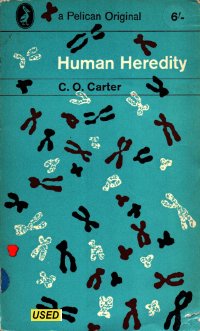By C. O. Carter
Human Heredity by C. O. Carter is an insightful exploration into the complex world of genetics and heredity. The book delves into the fundamental principles that govern how traits are passed down from one generation to the next, offering a comprehensive overview of the science behind human inheritance. Carter's meticulous research and clear writing style make this book an invaluable resource for students, educators, and anyone interested in understanding the genetic foundations of human biology. Whether you are a novice looking to expand your knowledge or a seasoned expert in the field, Human Heredity provides a thorough examination of this fascinating subject that is both informative and engaging.
Penguin Books, 1962 - Heredity, Human - 266 pages








